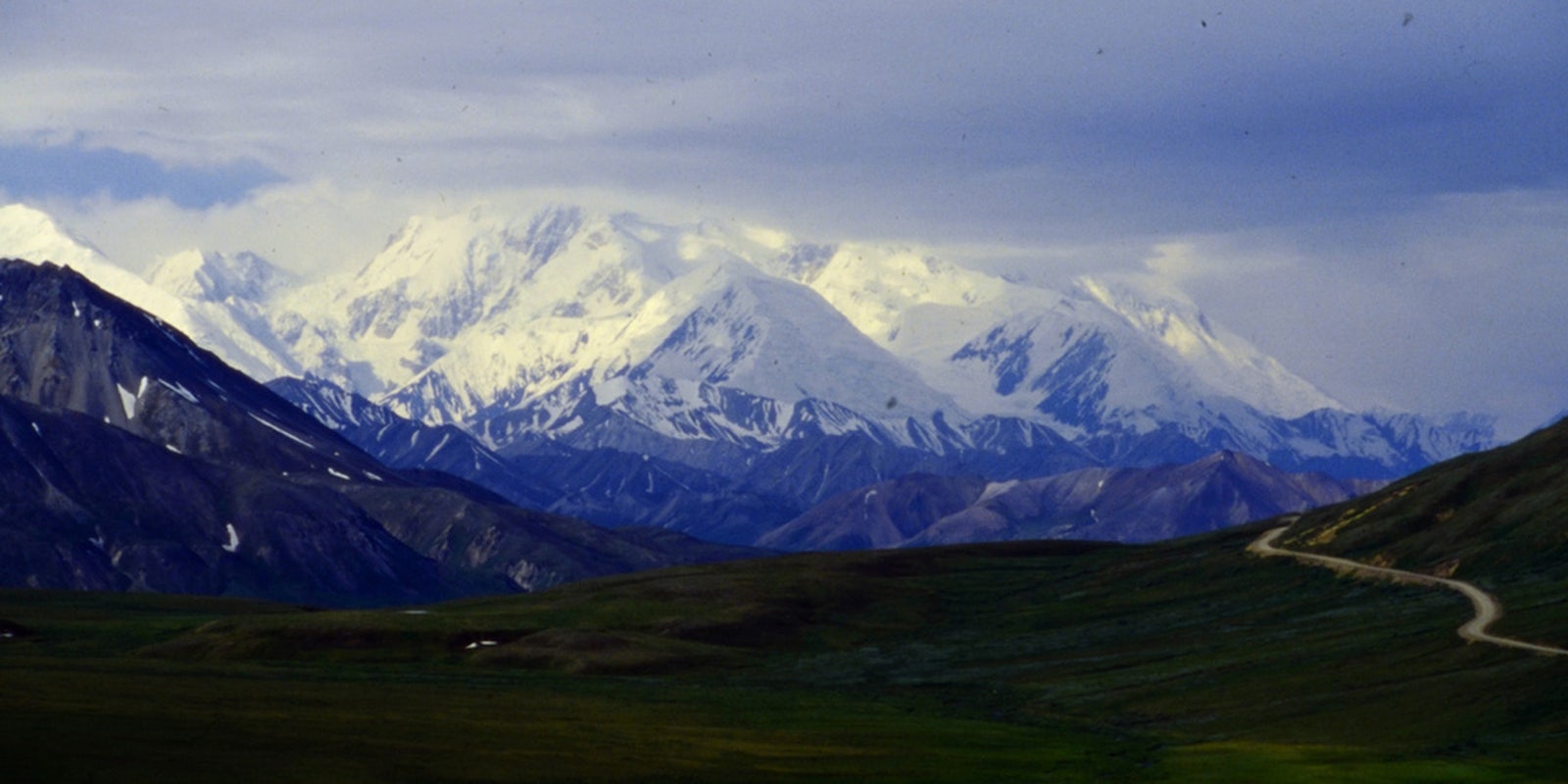After nearly 120 years of being known as its whitewashed moniker, Mt. McKinley, the nation’s tallest peak, is returning to its Athabascan roots. On Monday, President Obama will travel to central Alaska to officially rename Mt. McKinley as Denali, the mountain’s original name that has fallen to the wayside over the last century in most parts of the United States. For Alaskans, however, the name change is a long overdue gesture to honor Alaska’s native cultures and rid the Last Frontier of some of its imperialist hold-overs.
Although the Alaska state government already recognizes Mt. McKinley as Denali, which means “the great one” or “the high one,” the name change is more than a symbolic act. The soaring snow-covered mountain is emblematic of American whitewashing—even us kids who aced AP U.S. History have no idea about the mountain’s true Athabascan name.
The name McKinley, of course, comes from former President William McKinley of Ohio, who was assassinated in 1901 while serving his second term. But the mountain didn’t receive its more “American” name in McKinley’s death; the sky-grazing peak was actually named by a McKinley supporter during his initial presidential campaign. What’s a better way to get out the vote than by having the nation’s tallest mountain renamed just for you?
However, the federal government didn’t formally recognize the mountain as Mt. McKinley until 1917, when President Woodrow Wilson signed a bill signifying the McKinley National Park. Like most things in America, at that time and even now, white men in political office made sure the name McKinley, and not Denali, had a lasting legacy.
Renaming Mount McKinley to Denali restores an Alaska Native name to the 20,000-foot-plus peak http://t.co/IqVJr11v0r pic.twitter.com/D5nu5f00W1
— The New York Times (@nytimes) August 30, 2015
Outside of Alaska, “Denali” is a foreign word. Yet inside the vast state, the moniker never faded. In fact, the national park was renamed as Denali National Park and Preserve decades ago, and Alaskans continue to call the peak Denali, instead of bowing to the continental United States. After all, Caucasian explorers weren’t the first ones to step inside Alaska and discover the 20,000-foot-plus mountain. “We are simply reflecting the desire of most Alaskans to have an authentically Alaskan name for this iconic Alaskan feature,” a statement from the Department of Interior read, according to the Washington Post.
What’s telling about McKinley’s name change is that it’s mostly white Republican men in political office who are vocally defiant about the move—including Speaker of the House John Boehner of Ohio, who said he was “deeply disappointed” in Obama’s decision. In a statement released this week, Boehner lamented how this would erase McKinley’s legacy and denigrate his service to this country, from the Civil War to the White House.
But Alaskans see the name change as a rightful restoring of a legacy that was plundered more than a century ago. U.S. Sen. Lisa Murkowski, an Alaskan Republican, has been at the front of the debate, lobbying the federal government to recognize Denali on Twitter. On Monday morning, she tweeted a celebratory note about the mountain’s name change: “Today we are honored to recognize America’s highest peak officially as Denali, or ‘The Great One.’”
— Sen. Lisa Murkowski (@lisamurkowski) August 30, 2015
Today we are honored to recognize America's highest peak officially as Denali, or 'The Great One.' http://t.co/lxd3HKAOBo
— Sen. Lisa Murkowski (@lisamurkowski) August 30, 2015
And she’s correct: It’s not only more fitting for the great mountain, but also for its culture. Recognizing its history isn’t just the right thing to do—it’s also long overdue.
Lauren Barbato lives and writes in Boston. When she’s not writing about politics, reproductive rights or the arts, you can find her tutoring at 826Boston or cheering on her beloved Red Sox.
Photo via Woody H1/Flickr (CC BY 2.0)
